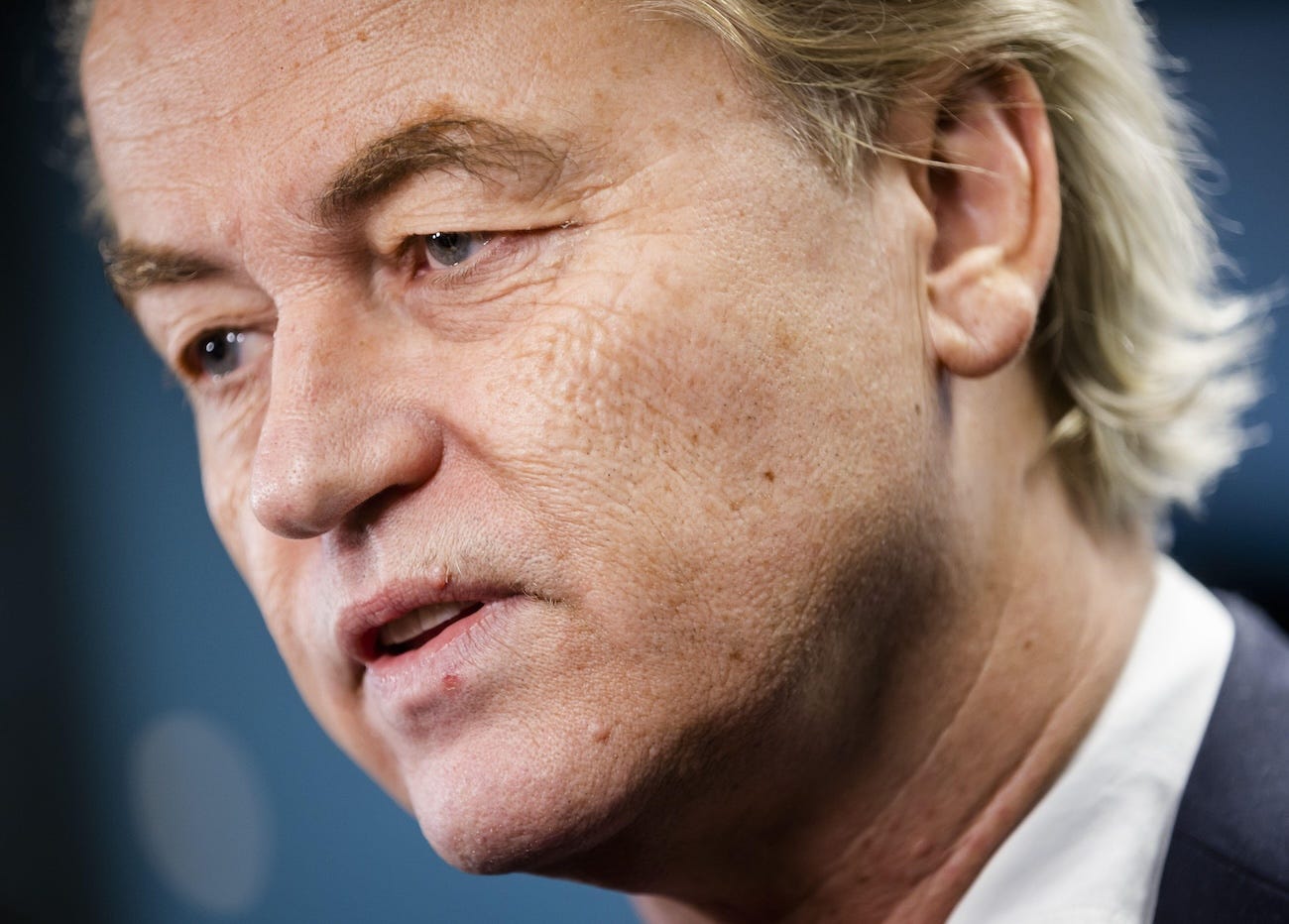What the Victory of the Far-Right 'Political Pyromaniac' Geert Wilders Means for the Netherlands and Europe
Chris Keulemans investigates the politician now fanning the flames of anti-Islam hatred in the Netherlands
Three of his voters live around the corner. I know them fairly well. We exchange jokes in the street and in the pub. I chat with their parents, wives and kids in the supermarket or the park. All three of them are singers. I’ve booked them at local festivals. Two of them – both big, bald and white – are excellent old-fashioned Amsterdam crooners. One has a day job as the bus driver of a rehab centre for young adults. The other is out of work: he is now too heavy to walk, so he moves around in a motorised wheelchair. He lives in a ground-floor apartment of 40 m2 with his wife, daughter, son-in-law and grandson.
The third singer is twenty-something. He lives with his parents. He is proudly known as our neighbourhood Elvis. The sideburns, the suit, the cheeky grin, he has it all. Except for the voice. People love hoisting him on stage and cheer his first moves, but as soon as he wants to start singing Jailhouse Rock or Suspicious Minds, someone is always wise enough to turn off the microphone. Our Elvis doesn’t care. The cheers he gets for leaving the stage will nourish him for weeks. ‘Did you hear that crowd,’ he’ll ask me when he’s walking his dog, his father never far behind. ‘Of course I did,’ I reply. ‘It was amazing!’
Our neighbourhood in the North of Amsterdam, built a century ago for the workers of the long-gone dockyards, consists of mainly social housing, although gentrification is doing its work. Almost half of the 8,000 inhabitants have non-western roots: Morocco, Turkey, Surinam. Down the road is the friendliest mosque in town. At the metro station, the drug dealers are getting younger all the time. Half the girls at the supermarket counters wear headscarves. Almost 20% of the votes here went to the PVV, the Party for the Freedom, in the national elections last Wednesday.
The nationwide score was 25%, which means the PVV will take 37 seats in parliament, out of a total of 150. Some 2.3 million Dutch voters chose Geert Wilders and his party. In our multi-party system – this time, 26 political parties competed – the winner will always have to form a coalition in order to shape a government. Negotiations can take months, but there is a clear path for a ruling coalition of four centre- to hard-right parties.
Wilders, a veteran with 25 years of parliamentary experience, will finally get the chance to put his ideas into practice.



